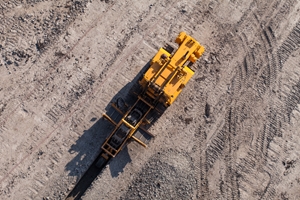
The estate of a man who was killed in the workplace is fighting an appeal that could prevent the employee's loved ones from receiving a lump sum workers compensation payment.
The man died from serious chest injuries when a 40-tonne excavator he was operating tipped over and crushed the vehicle's cabin. Colleagues rushed to the man's aid immediately but could not find a pulse, according to Supreme Court documents.
While the deceased's employer accepted liability for the accident and paid certain workers compensation support payments and funeral expenses, the company refused to pay a whole person impairment lump sum.
What are the rules surrounding workers compensation?
The Workers Compensation Act 1987 (NSW) states that employees who are seriously injured due to a workplace injury or illness are entitled to compensation if their permanent impairment level meets a certain threshold.
Physical injuries must have a permanent impairment level of at least 11 per cent, while psychological problems must be greater than 15 per cent.
The employer argued that 'permanent impairment' in the Act should not refer to injuries so severe that death would inevitably follow within a short timeframe. However, the man's estate said the term encompasses all permanent injuries, regardless of whether the individual is expected to survive.
Approved medical specialists appeared to have difficulty assessing the claim. The first medical practitioner to examine the evidence said the man suffered a 100 per cent whole person impairment (WPI), but this evaluation was reduced to 0 per cent on reconsideration.
The disparity between the two assessments shows the differing opinions of what 'permanent impairment' means in relation to the Act.
Both sides appeal the claim
The family appealed the 0 per cent ruling and the previous 100 per cent WPI was reinstated, leading to the employer launching its own appeal in the Supreme Court.
Justice Monika Schmidt ruled in favour of the estate, claiming that the term 'permanent impairment' should not take into consideration the employee's expected lifespan after the accident.
"The legislative scheme is concerned with those who are injured at work. When a worker suffers an injury which causes an impairment so serious that he or she cannot recover from it, even with treatment, there is 'permanent impairment'," she explained.
"Impairment which finally results in death is impairment of the most serious kind which a work injury can cause, whether death results quickly, or after more prolonged suffering."
The man's estate should now receive a workers compensation payment for permanent impairment, which can be distributed to loved ones along with his other assets.
Are you confused about workers compensation claims? Talk to a member of our team at Gerard Malouf & Partners Compensation, Medical Negligence & Will Dispute Lawyers to see if you're entitled to a payout.

